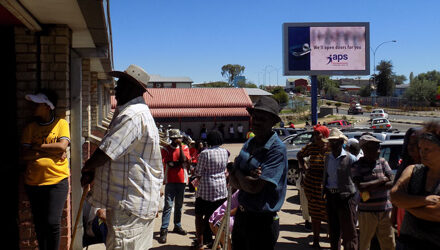
Food security weakening amid drought – report

In many cases, the livelihood of people in the rural areas has been affected severely by the ongoing drought, including restricted access to safe and nutritious food, a new report on food security shows.
Over 289,644 people are food insecure and need immediate food assistance. This number is expected to rise during the course of the 2019/2020 consumption period, according to the Namibian Vulnerability Assessment report released last week.
According to the report, farmers in the communal areas are unable to sell some of their livestock due to a lack of formal markets, poor livestock condition and very low livestock prices.
“Many of the animals are so thin that they later die, because they have nothing to eat. We then try to sell them but are not making much money. It is losses for us. People here in Namibia are not willing to pay for meat as much as they did about two years ago,” Maria Visser, a farmer said.
Visser is however pleased about the fact that the government has embarked on comprehensive drought interventions to be implemented countrywide until March 2020.
“These interventions include food relief to the drought affected communities, especially the vulnerable groups. Other interventions include livestock marketing incentive scheme, lease of grazing, transport subsidy to and from the grazing areas, water tanker services, rehabilitation and installation of boreholes, subsidy on lick supplements for core herd, fodder subsidy and provision of certified seeds,” Visser said.











































